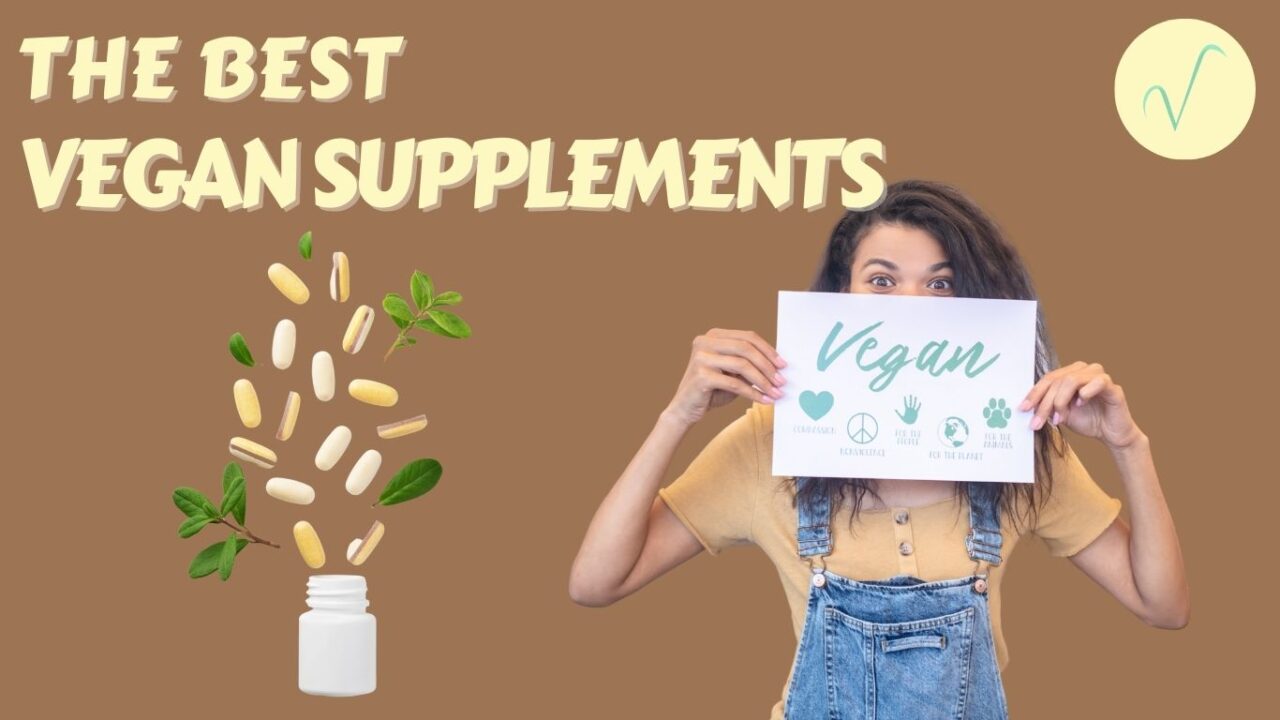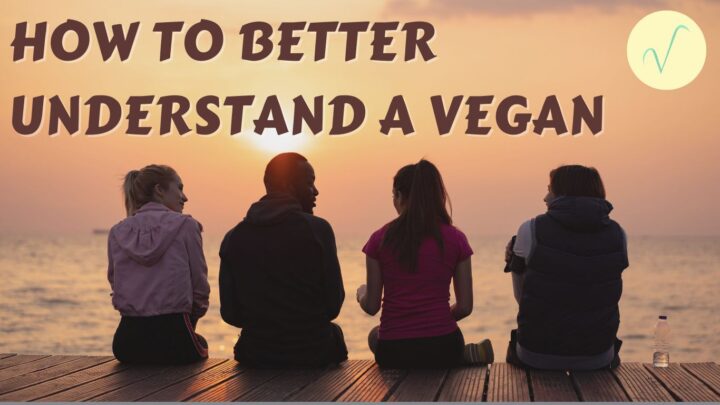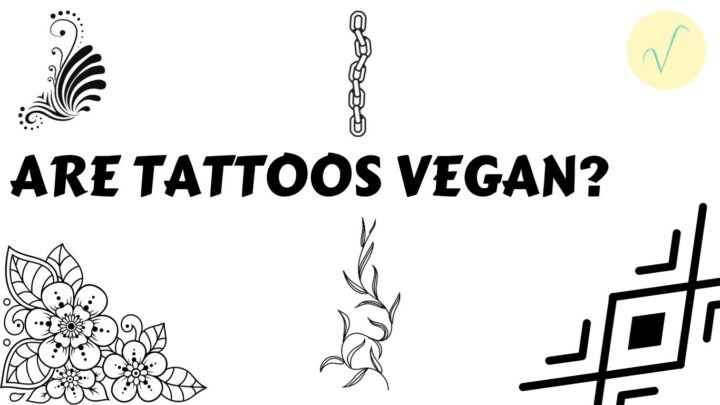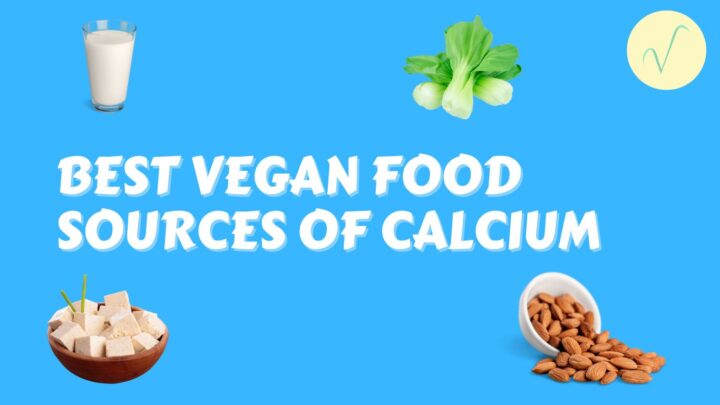Commonly when it comes to approach a vegan diet, one of the first questions people ask are: do vegans need supplements?
A poorly planned vegan diet, much like any other poorly planned diet, may result in the development of a nutrient deficiency if you’re not careful.
If anything, it’s important to know that the vegan diet, although commonly thought of as lacking in nutrients, isn’t detrimental at all if approached correctly.
In short, the nutrients to prioritise for a vegan diet, typically in low supply in an average vegan diet, are calcium, vitamin b12 and vitamin D. Let’s go through why these need to be supplemented below.
Why vegans need vitamin b12
It’s a nutrient to help with DNA synthesis, as well as helping keep nerve and blood cells healthy. It’s a key nutrient to assist with chemical processes that help with the maintenance of energy.
Vitamin B12 is typically higher in an omnivorous diet, whereas vegan diets tend to be richer in folate than the latter.
Are meat and dairy products supplemented with b12?
One of the main reasons meat and dairy products contain b12, is due to supplementation from animal feed.
Originally b12 was produced by soil microbes, which was originally eaten by livestock and converted into the vitamin you can absorb. The livestock that eats the grass require cobalt in their diet for the synthesis of b12.
Nowadays, with over farming and less nutrients in the soil, there’s been a decline in cobalt concentrations. Which is the reason why livestock need to be supplemented b12 in their animal feed.
With the information above, what you can take from that is the fact that b12 from meat and dairy products is simply recycled nutrients. The animals omnivores eat, have eaten supplements which provide them with b12.
How vegans can get vitamin b12
Luckily we live in the 21st century and can easily get vitamin b12 from a trusty 1x a day supplement. Vegans also have a plethora of plant-based food products such as cheeses, milks, and meats that already help you get that little bit more everyday.
See our top sources of foods supplemented with b12 here, and recommended supplements.

Why vegans need vitamin D?
As it’s commonly known, vitamin D is actually a hormone, not a vitamin. Vitamin D is important for the regulation of calcium and phosphate in the body; it’s also a key nutrient to help maintain an ideal immune system.
Vegan diets are also typically lower in vitamin D than their omnivorous and vegetarian counterparts.
With other factors, being more important than ensuring you have vitamin D in your diet, i.e. supplementation, sun exposure and overall skin pigment.
Why do meat and dairy products contain vitamin D?
Contrary to popular belief, only a few animal products actually contain vitamin D. Cow’s milk naturally has vitamin D-2, whereas the more potent form is D-3, which is why you see cow’s milk also being supplemented too.
Meat is also questionable, with a study that compared meat from Denmark, France, Germany, Canada & the US, analysing various meat cuts (pork, beef, lamb), concluding that vitamin D was not found in most meats.
Some samples with unexpectedly high concentrations were potentially supplemented. Yet another example of recycled nutrients!
How vegans can get vitamin D
Vegans can get vitamin D in many ways. One way is to buy UV-treated mushrooms (typically labelled as high in vitamin D), or you can buy your own mushrooms and leave them out in the sun!
Other food sources of vitamin D for vegans include fortified cereals, milks, cheeses and yoghurts. The best way, closest to nature is to spend more time in the sun and absorb all that goodness as your skin does it all for you.
Mind you, considering the inconsistencies in the factors that affect levels of vitamin D uptake, those in the Western world tend to get less of it. The best way for vegans to get vitamin D would be supplements for those who spend a lot of time indoors.
Read our posts on the best vegan supplemented foods, and recommended vitamin D supplements.

Why vegans need calcium?
As you may know, calcium is an essential nutrient for the maintenance of healthy bones and teeth. The daily recommended calcium intake is 1000mg per day, for adults aged between 19-50 years.
Studies show that vegans have a slightly higher (10%) risk of a bone fracture than non-vegans; Evidence also shows vegans only require 525mg per day for adequate calcium intake, to negate this risk completely.
It’s still recommended to eat the RDA for calcium, being 1000mg, but just know you’re also good with at least 525mg per day.
Do meat and dairy products contain calcium?
Vegetarians and omnivores consume the vast majority of their calcium from dairy products, such as milk, cream and cheese.
Dairy products tend to contribute to 52-65% of daily recommended calcium intake according to NCBI.
How vegans can get calcium
Vegans can get reliable calcium intake from a vast array of food sources, such as: Leafy greens, sesame, chia and poppy seeds, calcium-set tofu, almonds, pulses and fortified foods, such as plant-based milks, cheeses, etc.
The best way to get the highest quantities would be through intelligent food combining and consistency of those certain foods in your diet.
You could also consider a calcium supplement, but be cautious. Studies have shown that calcium in the form of supplements (not including dietary calcium), shows a positive correlation with abdominal aorta calcification in post-menopausal women.
Suggesting that calcium supplementation over time could potentially contribute to future cardiovascular events. Mind you it’s useful to know that calcium absorption and Vitamin D bioavailability go hand-in-hand, so it’s key to maintain a balance of both to have adequate calcium intake.
In short, we recommend food sources of calcium overall, ideally plant-based food sources. View our full list of calcium rich vegan foods for more.
Do vegans really need supplements?
We hope you found this article useful, feel free to leave a comment with any questions.
I tried to include relevant studies where possible for those who wanted more context to whatever claims were made.
If you liked this article feel free to bookmark, save and share with your loved ones!




